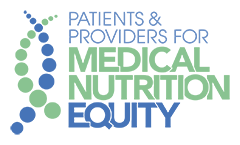Our PKU story is just getting started. We are older parents now. At ages 45 and 37, we decided to have a baby. We had just gotten married in 2017, and we wanted to have a child together. We have four other children in our blended family, and the youngest is 12. So we admit it—we were cocky. We thought having a new bundle of joy would be a breeze with all of our combined experience. We have both done the parenting thing, we have both worked with special needs individuals, we have both overcome personal traumas, and we both felt completely prepared for an infant—easy peasy! Then Jolynn was born…
Our hospital experience could not have gone more smoothly at IHC in Layton. Our nurses were ever-present and attentive; Dr. Leavitt was everything we had hoped for; and the labor wasn’t exactly a picnic, but it definitely could have been worse. When Little Jolie-Bean finally made her grand debut, we were absolutely overjoyed to snuggle our new, sweet baby. We didn’t even mind when the nurses came in to give her shots and poke her feet for whatever that PKU test was. We had no concerns when we took Jolynn home; after all, we were confident—we had this new parenting thing in the bag.
When Jolynn was just three days old, we got a call from “the government.” When the call came, we were sitting outside on the front porch swing, reveling in new parenthood. Neither of us can remember exactly what the caller ID said; we just remember it referenced the government. (In reality, the call was from the Newborn Screening Lab.) We were thinking it was a scam, but we answered the phone anyway. The woman’s voice we heard on the line explained that Jolynn’s blood tests were reading positive for PKU, and she told us that we would need to have more blood work done soon. In my naivety, I asked if we could wait for her two-week check up and have her pediatrician complete the additional labwork that was required. The woman sounded perplexed, then finally responded, “No, I mean, right now. I need you to go to the hospital right now.” She explained that, at three days old, Jolynn would need a venipuncture that very day; they had also scheduled her to meet with a specialist, a Metabolic Geneticist, at Primary Children’s Hospital that week. We had no idea what this meant, we had no idea what PKU was, and, frankly, the words “Metabolic Geneticist” were terrifying.
Naturally, we did what no new parents should ever do—we googled. On our way to the hospital, we had a ten-minute crash course about Phenylketonuria, or PKU. We learned that this is a life-long genetic disorder, and her tiny little body lacks the ability to break down the phenylalanine found in protein. We discovered that complications from PKU can result in seizure disorders, developmental delays, intellectual disabilities, behavioral problems, neurological deficits, psychiatric disorders, and even a musty body smell or skin discoloration. Not so awesome. We also learned that all of these complications can be negated through a specialized diet that limits protein! Our baby could grow up to be strong, healthy, smart, and active—just like her protein-gobbling peers. But diet is the one and only thing that is absolutely critical in helping her control her disorder. Jolynn’s diet is not only helpful; it is absolutely essential. Without following the diet, daunting consequences like the ones that we googled about are not just possibilities, but guaranteed eventualities.
We are a steak-loving, burger-eating, ice cream-celebrating family. We maybe cried a little after we learned that Jolynn will never eat bowlfuls of Grandma’s chicken noodle soup at a family reunion, or share the quintessential birthday treats at her BFF’s party, or drown her broken heart in a pint of ice cream after a lousy date. You see, Jolynn’s PKU not only affects her; we ALL have a lot to learn about a new way of eating and supporting Jolynn’s needs. For her, PKU means that weekly blood samples, daily food journaling, constant diet changes, and frequent check-ins with her medical team are all things that she has to look forward to. For the rest of us, PKU means we need to be proactive about things like encouraging healthier eating habits and learning to cook creative and yumm-o recipes that help her enjoy food as much as the rest of us do. Of course, there’s the obvious food no-no’s: chicken, pork, beef, fish, seafood, eggs, nuts, seeds, beans, dairy… But then there’s the not-so-obvious food no-no’s: chocolate, bread, potato chips, rice, pasta, marshmallows, flour, oats, Jello, aspartame, even some vegetables. Jolynn will need to learn about these food limitations, and she will need to know that it is simply dangerous to go beyond her food limits. Therefore, we have each pledged to do what we can to help limit Jolynn’s protein without limiting her.
We are not the only ones with an important pledge to make, though. A critical, vital, essential, necessary, important, significant, URGENT need is, and always will be, her medical food. Jolynn will always need a medical formula to supplement her daily food intake. For all her life, her medical supplemental food will provide her with enough vitamins and nutrition to grow while still keeping her levels of phenylalanine under control. We feel truly fortunate that our insurance company understands Jolynn’s medical needs and assists with financial coverage of her special formula. We know that some other families are not so lucky, and on behalf of ALL PKU families, we would love to see our lawmakers encourage greater insurance coverage of medically necessary food. We hope that our lawmakers will make the same pledge that PKU families make over and over and over again—to follow the best interests of our children so that they can live happy, healthy lives—with or without protein!
Thank you for letting us share our story!
